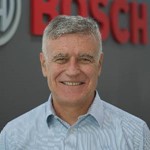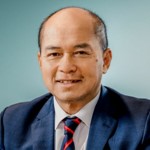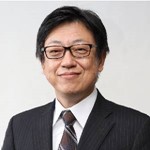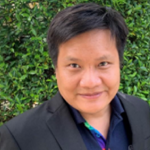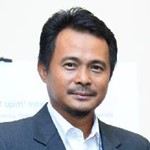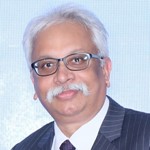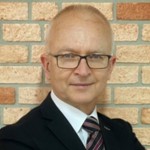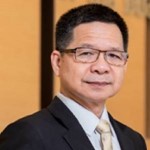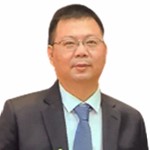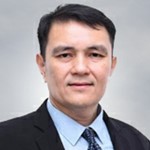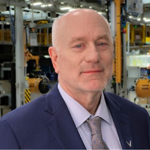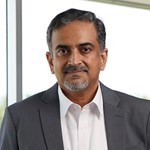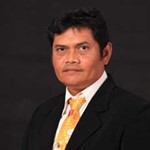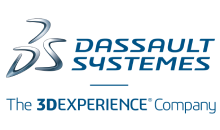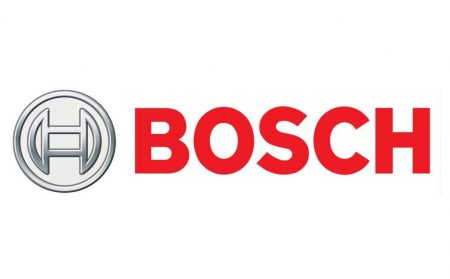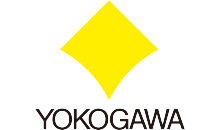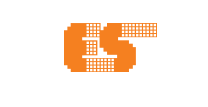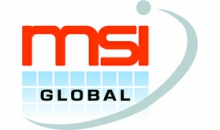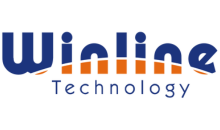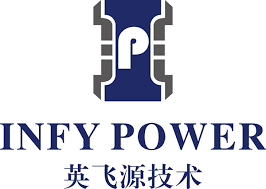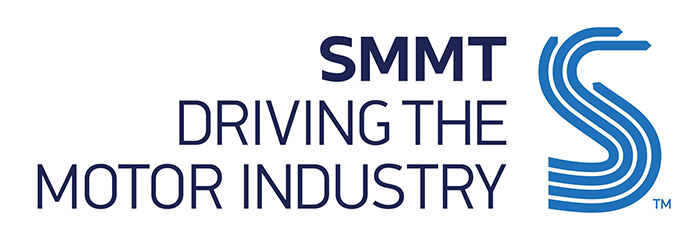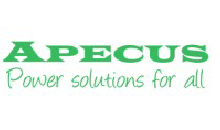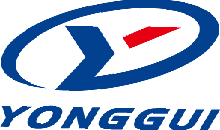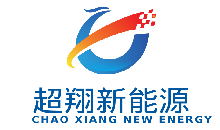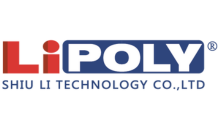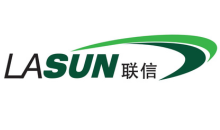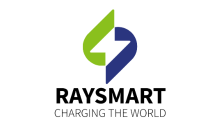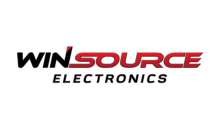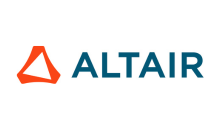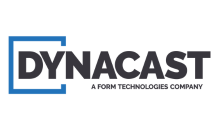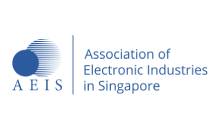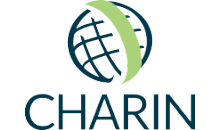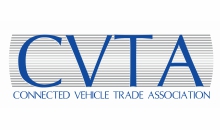- 17 May 2023 Day One
- 18 May 2023 Day Two
- 19 May 2023 Day Three
Opening Ceremony
09:00 - 11:00
09:00 10:15
Joint Opening Ceremony
FUTURE ENERGY ASIA AND FUTURE MOBILITY ASIA 2023
Ministerial Keynote
Thailand’s Journey to Net Zero 2050
Thai Energy Keynote
PTT’s Strategies and Leadership in Driving Gas, Renewables and Thailand’s Electric Vehicle Ambitions
SPEAKER
Thai Power Address
Championing the Transition to a Modern Power and E-Mobility System
SPEAKER
Thai E&P Keynote
E&P in Low Carbon World: Strategies for Cleaner Energy Investment
Wednesday 17 May 2023
09:00 - 10:15
Joint Opening Ceremony
FUTURE ENERGY ASIA AND FUTURE MOBILITY ASIA 2023
10:15 11:00
VIP Exhibition Tour & Coffee and Networking Break
Wednesday 17 May 2023
10:15 - 11:00
VIP Exhibition Tour & Coffee and Networking Break
Theme: Capturing Growth in APAC Emerging Mobility Sector
11:00 - 18:00
11:00 12:00
Leadership Panel: Navigating Electric Vehicles in APAC
Navigating Electric Vehicles in APAC
The transportation sector accounts for 17% of global GHG emissions, and the sector’s transition to alternate fuels and electric vehicles will be pivotal for meeting net-zero commitments. Building tomorrow’s EV ecosystem will require a radical overhaul of the entire value chain including more investment, favorable regulations and government intervention and incentive.
Attendee insights: Hear from industry leaders about the EV opportunity in the APAC region.
PANELISTS
Martin Knoss
Regional President, ASEAN Bosch Powertrain Solutions
Bosch Automotive Technologies Thailand
Wednesday 17 May 2023
11:00 - 12:00
Leadership Panel: Navigating Electric Vehicles in APAC
Navigating Electric Vehicles in APAC
The transportation sector accounts for 17% of global GHG emissions, and the sector’s transition to alternate fuels and electric vehicles will be pivotal for meeting net-zero commitments. Building tomorrow’s EV ecosystem will require a radical overhaul of the entire value chain including more investment, favorable regulations and government intervention and incentive.
Attendee insights: Hear from industry leaders about the EV opportunity in the APAC region.
PANELISTS
Martin Knoss
Regional President, ASEAN Bosch Powertrain Solutions, Bosch Automotive Technologies Thailand
12:00 13:00
Leadership Panel: Attracting Investments in Emerging Mobility Technologies
Attracting Investments in Emerging Mobility Technologies
Driven by autonomous driving, connected cars, electrified vehicles, and smart mobility, investments in emerging mobility ecosystem have accelerated. New opportunities within the ecosystem have given rise to new technologies including semiconductors, HMI and sensors. What can technology and mobility companies need do to continue attracting investments within the sector?
Attendee insights: Leaders from the mobility ecosystem share insights on investment opportunities and challenges within the mobility ecosystem.
PANELISTS
Wednesday 17 May 2023
12:00 - 13:00
Leadership Panel: Attracting Investments in Emerging Mobility Technologies
Attracting Investments in Emerging Mobility Technologies
Driven by autonomous driving, connected cars, electrified vehicles, and smart mobility, investments in emerging mobility ecosystem have accelerated. New opportunities within the ecosystem have given rise to new technologies including semiconductors, HMI and sensors. What can technology and mobility companies need do to continue attracting investments within the sector?
Attendee insights: Leaders from the mobility ecosystem share insights on investment opportunities and challenges within the mobility ecosystem.
PANELISTS
Lunch Break & Networking
13:00 - 14:00
14:00 15:00
Leadership Panel: Supercharging Two & Three Wheelers: Successful Electrification across Asian economies
Supercharging Two & Three Wheelers: Successful Electrification across Asian economies
For many countries in Asia, two-wheelers are the preferred vehicle choice. Today, gas motorcycles take precedence over electric motorcycles as the former tend to have lower ranges. While the benefits of electrification are wide-ranging, this downside may inhibit EV adoption in locations where two and three-wheeler vehicles are often used for long-distance travel. As countries invest in expanding their charging infrastructure, can battery swapping help overcome this challenge? What opportunities are available for companies, particularly in high potential regions?
Attendee insights: Navigate through challenges and opportunities for electrification of two and three wheelers across Asian economies.
MODERATOR
Wednesday 17 May 2023
14:00 - 15:00
Leadership Panel: Supercharging Two & Three Wheelers: Successful Electrification across Asian economies
Supercharging Two & Three Wheelers: Successful Electrification across Asian economies
For many countries in Asia, two-wheelers are the preferred vehicle choice. Today, gas motorcycles take precedence over electric motorcycles as the former tend to have lower ranges. While the benefits of electrification are wide-ranging, this downside may inhibit EV adoption in locations where two and three-wheeler vehicles are often used for long-distance travel. As countries invest in expanding their charging infrastructure, can battery swapping help overcome this challenge? What opportunities are available for companies, particularly in high potential regions?
Attendee insights: Navigate through challenges and opportunities for electrification of two and three wheelers across Asian economies.
MODERATOR
15:00 15:15
Keynote: Empowering the EV Ecosystem
Empowering the EV Ecosystem
Thailand has set an ambitious target for electric vehicle (EV) production – 30 percent of total automotive production by 2030. The country is well positioned to enhance its competitiveness and establish themselves as an EV manufacturing hub for Southeast Asia. Technology can play a vital role in addressing some of the biggest challenges OEMs and suppliers face to meet Thailand’s aspirations.
Wednesday 17 May 2023
15:00 - 15:15
Keynote: Empowering the EV Ecosystem
Empowering the EV Ecosystem
Thailand has set an ambitious target for electric vehicle (EV) production – 30 percent of total automotive production by 2030. The country is well positioned to enhance its competitiveness and establish themselves as an EV manufacturing hub for Southeast Asia. Technology can play a vital role in addressing some of the biggest challenges OEMs and suppliers face to meet Thailand’s aspirations.
Afternoon Break & Networking
15:15 - 15:45
15:45 16:45
Leadership Panel: The Role of Hydrogen in Decarbonizing Hard-to-Electrify Mobility Sectors
The Role of Hydrogen in Decarbonizing Hard-to-Electrify Mobility Sectors
Hydrogen demand in road transport has increased 60% since 2020 and is poised to expand rapidly over the next decade. Advances made in hydrogen fuel cell electric vehicles (FCEV) offer an alternative towards electrifying the road transport sector. However, an expensive supply chain and related technologies are delaying implementation. Owning and driving a hydrogen powered fuel cell will cost at least two to three times more than one powered by fossil fuels. How can policymakers help fast track adoption of hydrogen and FCEV in road transportation? What needs to be done to build a robust hydrogen supply chain for the mobility sector?
Attendee insights: Hydrogen adoption in the mobility sector is imperative to meet net-zero goals. Hear from mobility leaders and hydrogen producers on the way forward for successful deployment of hydrogen in the industry.
PANELISTS
Wednesday 17 May 2023
15:45 - 16:45
Leadership Panel: The Role of Hydrogen in Decarbonizing Hard-to-Electrify Mobility Sectors
The Role of Hydrogen in Decarbonizing Hard-to-Electrify Mobility Sectors
Hydrogen demand in road transport has increased 60% since 2020 and is poised to expand rapidly over the next decade. Advances made in hydrogen fuel cell electric vehicles (FCEV) offer an alternative towards electrifying the road transport sector. However, an expensive supply chain and related technologies are delaying implementation. Owning and driving a hydrogen powered fuel cell will cost at least two to three times more than one powered by fossil fuels. How can policymakers help fast track adoption of hydrogen and FCEV in road transportation? What needs to be done to build a robust hydrogen supply chain for the mobility sector?
Attendee insights: Hydrogen adoption in the mobility sector is imperative to meet net-zero goals. Hear from mobility leaders and hydrogen producers on the way forward for successful deployment of hydrogen in the industry.
PANELISTS
16:45 17:00
Keynote: Mobility Reimagined in Smart Cities of the Future
Mobility Reimagined in Smart Cities of the Future
17:00 18:00
Leadership Panel: Regulatory and Technical Challenges in Adopting Urban Air Mobility
Regulatory and Technical Challenges in Adopting Urban Air Mobility
Many Southeast Asian nations are putting in place the framework to adopt urban air mobility for passengers as well as transportation of goods. Urban Air Mobility (UAM) will have far reaching benefits in bringing healthcare and logistics connectivity in hard-to-reach areas. Ensuring electric aircrafts are safe, quiet, affordable, and environmentally friendly is imperative. How can the industry and policymakers facilitate rapid technology development and deployment of UAM? What is the outlook of advanced air mobility by 2030? Will air taxis be autonomous?
Attendee insights: Industry leaders take the stage to discuss pertinent issues around urban air mobility.
Wednesday 17 May 2023
17:00 - 18:00
Leadership Panel: Regulatory and Technical Challenges in Adopting Urban Air Mobility
Regulatory and Technical Challenges in Adopting Urban Air Mobility
Many Southeast Asian nations are putting in place the framework to adopt urban air mobility for passengers as well as transportation of goods. Urban Air Mobility (UAM) will have far reaching benefits in bringing healthcare and logistics connectivity in hard-to-reach areas. Ensuring electric aircrafts are safe, quiet, affordable, and environmentally friendly is imperative. How can the industry and policymakers facilitate rapid technology development and deployment of UAM? What is the outlook of advanced air mobility by 2030? Will air taxis be autonomous?
Attendee insights: Industry leaders take the stage to discuss pertinent issues around urban air mobility.
Theme: How Innovations are Changing the Mobility Game
09:00 - 18:00
09:00 10:00
Leadership Panel: Fostering Partnerships to Build a Robust EV Charging Infrastructure
Fostering Partnerships to Build a Robust EV Charging Infrastructure
Electric vehicles are a key piece in the decarbonization puzzle. However, the lack of EV charging infrastructure is one of the biggest challenges in accelerating adoption of electric vehicles. For the mobility industry, it is pertinent to ease “range anxiety” amongst potential customers. What are the opportunities of integrating charging into existing building and grid infrastructure? How can incumbents and policymakers forge partnerships and collaboration between countries to enable cross-border EV charging networks? What new business models are needed?
Attendee insights: Gain insight into policies, strategies and investments needed to build a robust EV charging infrastructure across borders.
PANELISTS
Nate Thanet Chanchareon
Senior Vice President – New City Development
Nebula Corporation – a subsidiary of MQDC (Magnolia Quality Developments Corporation)
Wan Ahmad Zam Zam Wan Abd Wahab
Program Director (PMO Electric Vehicle)
Tenaga Nasional Berhad (TNB)
Thursday 18 May 2023
09:00 - 10:00
Leadership Panel: Fostering Partnerships to Build a Robust EV Charging Infrastructure
Fostering Partnerships to Build a Robust EV Charging Infrastructure
Electric vehicles are a key piece in the decarbonization puzzle. However, the lack of EV charging infrastructure is one of the biggest challenges in accelerating adoption of electric vehicles. For the mobility industry, it is pertinent to ease “range anxiety” amongst potential customers. What are the opportunities of integrating charging into existing building and grid infrastructure? How can incumbents and policymakers forge partnerships and collaboration between countries to enable cross-border EV charging networks? What new business models are needed?
Attendee insights: Gain insight into policies, strategies and investments needed to build a robust EV charging infrastructure across borders.
PANELISTS
Nate Thanet Chanchareon
Senior Vice President – New City Development, Nebula Corporation – a subsidiary of MQDC (Magnolia Quality Developments Corporation)
Wan Ahmad Zam Zam Wan Abd Wahab
Program Director (PMO Electric Vehicle), Tenaga Nasional Berhad (TNB)
10:00 11:00
Leadership Panel: Multimodal Mobility Hubs & Public Transport of the Future
Multimodal Mobility Hubs & Public Transport of the Future
As global mobility demand continues to grow, it will be crucial to achieve seamless transitions from one transport mode to another. Mobility hubs in the current transport system are often public transport nodes and park & ride facilities. However, there is an opportunity to do more. Electrifying public transport will significantly reduce their environmental impact, and making public transport safe, convenient, and affordable will be crucial to increasing the uptake in emerging countries. What lessons and best practices can be learnt from cities and regions leading the transformation of mobility hubs & public transport? What financing reforms are required for developing economies?
Attendee insights: Learn about mobility hubs of the future.
Thursday 18 May 2023
10:00 - 11:00
Leadership Panel: Multimodal Mobility Hubs & Public Transport of the Future
Multimodal Mobility Hubs & Public Transport of the Future
As global mobility demand continues to grow, it will be crucial to achieve seamless transitions from one transport mode to another. Mobility hubs in the current transport system are often public transport nodes and park & ride facilities. However, there is an opportunity to do more. Electrifying public transport will significantly reduce their environmental impact, and making public transport safe, convenient, and affordable will be crucial to increasing the uptake in emerging countries. What lessons and best practices can be learnt from cities and regions leading the transformation of mobility hubs & public transport? What financing reforms are required for developing economies?
Attendee insights: Learn about mobility hubs of the future.
11:00 11:15
Keynote: Harnessing AI to Enable Safety and Sustainability in Mobility
Harnessing AI to Enable Safety and Sustainability in Mobility
Morning Break & Networking
11:15 - 11:45
11:45 12:30
Leadership Panel: Fast Tracking Automotive Production
Fast Tracking Automotive Production
Growing urbanization, surge in investment in road infrastructure, and increasing adoption of electric vehicles are expected to drive the demand for automobiles. Growing demand will require fast tracking of production. How can new technologies and materials help manufacturers? What markets are leading and what best practices can be implemented from their experiences?
Attendee insights: Understanding the innovations revolutionizing the auto industry.
Thursday 18 May 2023
11:45 - 12:30
Leadership Panel: Fast Tracking Automotive Production
Fast Tracking Automotive Production
Growing urbanization, surge in investment in road infrastructure, and increasing adoption of electric vehicles are expected to drive the demand for automobiles. Growing demand will require fast tracking of production. How can new technologies and materials help manufacturers? What markets are leading and what best practices can be implemented from their experiences?
Attendee insights: Understanding the innovations revolutionizing the auto industry.
12:30 12:45
Keynote: Demystifying Industry 4.0- The Future of Productivity
Demystifying Industry 4.0- The Future of Productivity
12:45 13:00
Keynote: Global Trends in Mobility and Growing Demand in EV Charging Infrastructure in Asia
Global Trends in Mobility and Growing Demand in EV Charging Infrastructure in Asia
Thursday 18 May 2023
12:45 - 13:00
Keynote: Global Trends in Mobility and Growing Demand in EV Charging Infrastructure in Asia
Global Trends in Mobility and Growing Demand in EV Charging Infrastructure in Asia
Lunch Break & Networking
13:00 - 14:00
14:00 15:00
Leadership Panel: The Regional EV Manufacturing Hub
Thailand: The Regional EV Manufacturing Hub
Leading the way in Asia, Thailand is home to some of the world’s leading automobile manufacturers. In 2021, the production volume of automobiles in Thailand was 1.72 million with export volume of automobiles reaching 960 thousand units. As the industry transitions from ICE to EV production, what new challenges and opportunities arise? What are the barriers to entry for new players?
Attendee insights: Learn about opportunities in Thailand’s autmotive manufacturing ecosystem.
MODERATOR
Thursday 18 May 2023
14:00 - 15:00
Leadership Panel: The Regional EV Manufacturing Hub
Thailand: The Regional EV Manufacturing Hub
Leading the way in Asia, Thailand is home to some of the world’s leading automobile manufacturers. In 2021, the production volume of automobiles in Thailand was 1.72 million with export volume of automobiles reaching 960 thousand units. As the industry transitions from ICE to EV production, what new challenges and opportunities arise? What are the barriers to entry for new players?
Attendee insights: Learn about opportunities in Thailand’s autmotive manufacturing ecosystem.
MODERATOR
15:00 15:15
Keynote: Implementing Industry 4.0 Technology into the Automotive Sector
Implementing Industry 4.0 Technology into the Automotive Sector
Afternoon Break & Networking
15:15 - 15:45
15:45 16:45
Leadership Panel: Building A Resilient and Intelligent Electric Vehicle Supply Chain
Building A Resilient and Intelligent Electric Vehicle Supply Chain
Southeast Asia is the seventh-largest automotive manufacturing hub globally, producing 3.7 million vehicles in 2022. With government incentives, a robust manufacturing base and rich mineral resources, many ASEAN members are poised to play a significant role in the EV supply chain. What are the opportunities ahead for them? What pitfalls should they be aware of? What disruptions will the mainstreaming of EVs bring to the automotive supply chain?
Attendee insights: Industry leaders share insights into building a resilient and intelligent supply chain to meet growing demand for automotives, both globally and regionally.
PANELISTS
Thursday 18 May 2023
15:45 - 16:45
Leadership Panel: Building A Resilient and Intelligent Electric Vehicle Supply Chain
Building A Resilient and Intelligent Electric Vehicle Supply Chain
Southeast Asia is the seventh-largest automotive manufacturing hub globally, producing 3.7 million vehicles in 2022. With government incentives, a robust manufacturing base and rich mineral resources, many ASEAN members are poised to play a significant role in the EV supply chain. What are the opportunities ahead for them? What pitfalls should they be aware of? What disruptions will the mainstreaming of EVs bring to the automotive supply chain?
Attendee insights: Industry leaders share insights into building a resilient and intelligent supply chain to meet growing demand for automotives, both globally and regionally.
PANELISTS
16:45 17:00
Keynote: The Sustainable Cities Challenge: Bringing Cities and Innovators Together to Create Solutions Fit for the Future
The Sustainable Cities Challenge: Bringing Cities and Innovators Together to Create Solutions Fit for the Future
Thursday 18 May 2023
16:45 - 17:00
Keynote: The Sustainable Cities Challenge: Bringing Cities and Innovators Together to Create Solutions Fit for the Future
The Sustainable Cities Challenge: Bringing Cities and Innovators Together to Create Solutions Fit for the Future
17:00 17:30
Leadership Panel: A New Logistics Approach to Support EV Manufacturing
A New Logistics Approach to Support EV Manufacturing
Logistics companies play a critical role in EV manufacturing. An effective logistical network is key to maintaining operational efficiency. What new challenges does EV manufacturing pose to logistics operations? What bottlenecks does the battery manufacturing sector face? What needs to be done to transition logistics operations from ICE to being tailored for EV?
Attendee insights: Gain understanding of the role of logistics in EV manufacturing and new approaches for greater efficiency.
Thursday 18 May 2023
17:00 - 17:30
Leadership Panel: A New Logistics Approach to Support EV Manufacturing
A New Logistics Approach to Support EV Manufacturing
Logistics companies play a critical role in EV manufacturing. An effective logistical network is key to maintaining operational efficiency. What new challenges does EV manufacturing pose to logistics operations? What bottlenecks does the battery manufacturing sector face? What needs to be done to transition logistics operations from ICE to being tailored for EV?
Attendee insights: Gain understanding of the role of logistics in EV manufacturing and new approaches for greater efficiency.
17:30 17:45
Keynote: Transforming the System in South Kalimantan, Indonesia – A Case Study
Transforming the System in South Kalimantan, Indonesia – A Case Study
17:45 18:00
Keynote: Making Mobility Sustainable – Success Stories from Bali, Indonesia
Making Mobility Sustainable – Success Stories from Bali, Indonesia
Theme: Fleet Electrification – The Opportunity in Asia
09:00 - 13:00
09:00 10:00
Leadership Panel: Fleet Charging: Opportunities & Challenges
Fleet Charging: Opportunities & Challenges
Fleet charging networks is essential to Southeast Asia’s plans to electrify its public transport and logistics fleets. It also poses a significant opportunity for fleet operators with technologies such as overnight charging, on-route charging and battery swapping. To realize its potential, fleet owners, operators and utilities will need to partner to implement battery swapping systems for two-wheelers and adapting the power grids for fleet charging.
Attendee insights: Learn about strategies to expand the availability of fleet charging networks and thus enhancing EV fleet adoption.
Friday 19 May 2023
09:00 - 10:00
Leadership Panel: Fleet Charging: Opportunities & Challenges
Fleet Charging: Opportunities & Challenges
Fleet charging networks is essential to Southeast Asia’s plans to electrify its public transport and logistics fleets. It also poses a significant opportunity for fleet operators with technologies such as overnight charging, on-route charging and battery swapping. To realize its potential, fleet owners, operators and utilities will need to partner to implement battery swapping systems for two-wheelers and adapting the power grids for fleet charging.
Attendee insights: Learn about strategies to expand the availability of fleet charging networks and thus enhancing EV fleet adoption.
10:00 11:00
Leadership Panel: Greening Asia’s Last Mile Transport & Delivery Fleet
Greening Asia’s Last Mile Transport & Delivery Fleet
The carbon footprint of the last mile has long been an environmental and societal challenge. During the pandemic, new consumer behaviours, and retailers’ responses to them, changed last mile delivery’s carbon footprint, making it more sustainable. With intentional planning, forward looking strategies and investments, the last mile can be made more sustainable and cost effective. What new collaborations and partnerships are needed to make the last mile greener? What role will asset choices, digitalisation, and new business models play in greening Asia’s last mile?
Attendee insights: Gain insight into last mile operations and pivots needed to make transport and delivery fleet greener and sustainable.
MODERATOR
Friday 19 May 2023
10:00 - 11:00
Leadership Panel: Greening Asia’s Last Mile Transport & Delivery Fleet
Greening Asia’s Last Mile Transport & Delivery Fleet
The carbon footprint of the last mile has long been an environmental and societal challenge. During the pandemic, new consumer behaviours, and retailers’ responses to them, changed last mile delivery’s carbon footprint, making it more sustainable. With intentional planning, forward looking strategies and investments, the last mile can be made more sustainable and cost effective. What new collaborations and partnerships are needed to make the last mile greener? What role will asset choices, digitalisation, and new business models play in greening Asia’s last mile?
Attendee insights: Gain insight into last mile operations and pivots needed to make transport and delivery fleet greener and sustainable.
MODERATOR
11:00 11:15
Keynote: How Startups are Disrupting Mobility and What Large Companies Should Do About It
How Startups are Disrupting Mobility and What Large Companies Should Do About It
Morning Break & Networking
11:15 - 11:45
11:45 12:45
Leadership Panel: Seizing the Opportunity to Electrify Asia’s Medium & Heavy-Duty Fleet
Seizing the Opportunity to Electrify Asia’s Medium & Heavy-Duty Fleet
Transportation is a major driver of GHG emissions that must be addressed to meet net-zero goals. While significant progress has been made in electrifying light-duty vehicles, electrification of medium and heavy-duty fleet must be accelerated. What are the opportunities to electrify Asia’s medium and heavy-duty fleet? What new partnerships and collaborations can be expected to ensure a successful transition? How can new business models such as energy-as-a-service and mobility-as-a-service accelerate adoption of medium and heavy-duty EVs?
Attendee insights: Hear from industry leaders on opportunities and progress made in electrifying medium and heavy-duty fleet.
Friday 19 May 2023
11:45 - 12:45
Leadership Panel: Seizing the Opportunity to Electrify Asia’s Medium & Heavy-Duty Fleet
Seizing the Opportunity to Electrify Asia’s Medium & Heavy-Duty Fleet
Transportation is a major driver of GHG emissions that must be addressed to meet net-zero goals. While significant progress has been made in electrifying light-duty vehicles, electrification of medium and heavy-duty fleet must be accelerated. What are the opportunities to electrify Asia’s medium and heavy-duty fleet? What new partnerships and collaborations can be expected to ensure a successful transition? How can new business models such as energy-as-a-service and mobility-as-a-service accelerate adoption of medium and heavy-duty EVs?
Attendee insights: Hear from industry leaders on opportunities and progress made in electrifying medium and heavy-duty fleet.
12:45 13:00
Keynote: Partnerships and Technologies Accelerating Electric Trucks Adoption in Asia
Partnerships and Technologies Accelerating Electric Trucks Adoption in Asia
13:00 13:15
Keynote: Are You Ready for Software-Defined Vehicles?
Are You Ready for Software-Defined Vehicles?
- 17 May 2023 Day One
- 18 May 2023 Day Two
- 19 May 2023 Day Three
















